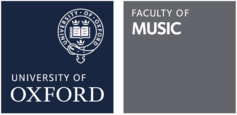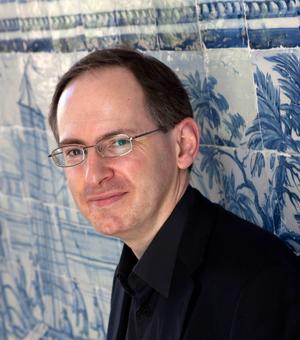Professor Owen Rees
Owen Rees is a Professor of Music at the University, Fellow, Tutor and Organist of The Queen’s College, and Senior Research Fellow of Somerville College.
Born in 1964, he read music at St Catharine’s College, Cambridge, where he held an Organ Scholarship. His postgraduate research was likewise undertaken at Cambridge, under the supervision of Peter le Huray and Iain Fenlon, and he completed his doctorate in 1991. He was Lecturer in Music at St Peter’s College and St Edmund Hall, Oxford, 1989-1991, and then Lecturer and — from 1996 — Reader in the Department of Music at the University of Surrey. He took up his current posts in Oxford in 1997.
He is active as both scholar and performer, and these two areas of his work inform one another. His research is concerned principally with music from 1450 to 1650, particularly in Spain and Portugal, and in England. His monograph on the largest surviving collection of early Portuguese musical sources — from the Monastery of Santa Cruz in Coimbra — deals both with Portuguese repertories and with cultural and musical connections between Portugal and other countries. He has edited music by three of the most important Portuguese composers of the period, Manuel Cardoso, Pedro de Cristo and Duarte Lobo. His published work on Spanish music has included studies of the works of Cristóbal de Morales and Francisco Guerrero, including issues of emulation. He has also written on the sacred music of William Byrd.
His research is frequently reflected in the performances and recordings of the various vocal groups which he directs:Contrapunctus, The Choir of The Queen’s College, and The Cambridge Taverner Choir. With these groups he has released recordings on the Hyperion, Guild, and Herald labels, including six recordings of Portuguese polyphony by Manuel Cardoso, Duarte Lobo, Pedro de Cristo, and other composers. He presents numerous concerts with these groups, in the UK and abroad, each year. Recent festival appearances include: Oslo Kirchenmusic Festival, Festival International “Portico de Semana Santa de Zamora”, and the York Early Music Festival. As Organist of The Queen’s College, he directs the Choir in its provision of music at chapel services (three each week during termtime), concerts, tours, and recordings.
His Faculty teaching at Oxford has included many areas of Renaissance music, as well as historical performance practice and choral conducting. Recent undergraduate topics have included Music and the Protestant Reformations to c. 1630 and Music in the Iberian World, 1492-1650. At Queen’s and Somerville he teaches many areas of the undergraduate course, including historical topics, techniques of stylistic composition, analysis, and keyboard skills. He has supervised postgraduate dissertations on a wide range of topics, particularly within the fields of Renaissance and Baroque music.
BOOKS
Polyphony in Portugal c. 1530-c. 1620: Sources from the Monastery of Santa Cruz, Coimbra (New York & London: Garland, 1995)
Music by Pedro de Cristo: An Edition of the Motets from Coimbra, Biblioteca Geral da Universidade, MM 33 , Music Archive Publications, Series C, vol. 1. (Harwood Academic Publishers, 1999)
Cristóbal de Morales: Sources, Inflences, Reception, co-edited with Bernadette Nelson (The Boydell Press, 2007)
SELECTED BOOK CHAPTERS AND JOURNAL ARTICLES
‘The English Background to Byrd’s Motets: Textual and Stylistic Models for Infelix ego’, in Byrd Studies (Cambridge University Press, 1992), pp. 24-50
‘Guerrero’s L’homme armé Masses and their Models’, Early Music History 12 (1993), pp. 19-54
‘Texts and Music in LisbonBN 60′, Revista de Musicología 16/3 (1993), pp. 1515-33 (Proceedings of the Fifteenth Congress of the International Musicological Society, Mediterranean Musical Cultures and their Ramifications, Study Session VIII: Texto y música en los cancioneros españoles y portugueses en torno a 1500)
‘Newly-identified Holograph Manuscripts from late-Renaissance Portugal’, Early Music 22 (1994), pp. 261-77
‘Lisbon, Biblioteca Nacional, CIC Ms 60: the Repertories and their Context’, Revista Portuguesa de Musicologia 4-5 (1994-5), pp. 53-93
‘Mille regretz as Model: Possible Allusions to “The Emperor’s Song” in the Chanson Repertory’, Journal of the Royal Musical Association 120/1 (1995), pp. 44-76
‘Roman Polyphony at Tarazona’, Early Music 23 (1995), pp. 411-19
‘Some observations on parody Masses by Magalhães, Cardoso and Garro’, Revista Portuguesa de Musicologia 7-8 (1997/1998), pp. 7-23
‘”Recalling Cristóbal de Morales to Mind”: Emulation in Francisco Guerrero’s Sacræ cantiones of 1555‘, in David Crawford (ed.),Encomium musicæ: Essays in Honor of Robert J. Snow (Pendragon, 2002), Festschift Series no. 17, pp. 365-94
‘Machaut’s Mass and Sounding Number’, in Elizabeth Eva Leach (ed.), Analysing Machaut, Studies in Medieval and Renaissance Music 1 (series editors Tess Knighton and Andrew Wathey) (Boydell & Brewer, 2003), 95-110
‘Relaciones musicales entre España y Portugal’, in John Griffiths & Javier Suárez-Pajares (eds), Políticas y prácticas musicales en el mundo de Felipe II, Música Hispana, Textos, Estudios 8 (Madrid: Instituto Complutense de Ciencias Musicales, 2004), 455-487
‘Adventures of Portuguese “Ancient Music” in Oxford, London, and Paris: Duarte Lobo’s Liber missarum and Musical Antiquarianism, 1650-1850’, Music & Letters 86 (2005), 42-73
‘”The City Full of Grief”: Music for the Exequies of King Phillip II’, in Melania Bucciarelli and Berta Joncus (eds), Music as Social and Cultural Practice: Essays in Honour of Reinhard Strohm (Woodbridge: Boydell, 2007), 119-38
‘Parody and Patriotism: A Sebastianist Reading of the Masses of Filipe de Magalhães’, in Jennifer Bloxam & Gioia Filocamo (eds), ‘Uno gentile et subtile ingenio’: Studies in Renaissance Music in Honour of Bonnie Blackburn (Turnhout: Brepols, 2009), pp. 391–40
“Forging Better Works Day by Day”: Two Case-Studies of Recomposition in the Motets of Francisco Guerrero’, in João Pedro d’Alvarenga & Manuel Pedro Ferreira (eds), ‘New Music’ 1400–1600: Papers from an International Colloquium on the Theory, Authorship and Transmission of Music in the Age of the Renaissance (Lisbon-Évora, 27–29 May 2003) (Lisbon & Évora: Editora Casa do Sul, 2009), pp. 193–224
‘Luisa de Carvajal y Mendoza and Music in an English Catholic House in 1605’, in Emma Hornby & David Maw (eds), Essays on the History of English Music in Honour of John Caldwell: Sources, Style, Performance, Historiography (Woodbridge: Boydell, 2010), pp. 270–80
‘Singing Sweetly to the Virgin: Josquin’s Inviolata’, in Manuele Gragnolati & Almut Suerbaum (eds), Aspects of the Performative in Medieval Culture, Trends in Medieval Philology 18 (Berlin: de Gruyter, 2010), pp. 199–219
‘”Jesu Redemptor”: Polyphonic Funerary Litanies in Portugal’, in Tess Knighton & Bernadette Nelson (eds), Pure Gold: Golden Age Sacred Music in the Iberian World. A Homage to Bruno Turner, DeMusica 15 (Edition Reichenberger, 2011), pp. 228–61
‘Seville Cathedral’s Music in Performance, 1549–1599’, in Colin Lawson & Robin Stowell (eds), The Cambridge History of Musical Performance (Cambridge University Press, 2012), pp. 353–74
‘The Cantum ecclesiasticum of Filipe de Magalhães’, in Michael B. O’Connor (ed.): Treasures of the Golden Age: Essays in Honour of Robert Stevenson, Festschrift Series 27 (Hillsdale: Pendragon Press, 2012), 59–86
‘Tomás Luis de Victoria’, in Oxford Bibliographies in Music, ed. Bruce Gustafson (New York: Oxford University Press)
‘Victoria’s Officium defunctorum in Context’, in Javier Suárez-Pajares & Manuel del Sol (eds.): Estudios. Tomás Luis de Victoria. Studies (Madrid: Instituto Complutense de Ciencias Musicales, 2013)
‘The Coimbra Manuscripts and the “Spanish Court Repertory”: The Motet Peccavi Domine’, Musical Exchanges, 1100–1650: Iberian Connections, Iberian Early Music Studies 2 (Kassel: Edition Reichenberger, 2016), 191–208
‘The Renaissance’, in 30-Second Classical Music, ed. Joanne Cormac (Brighton: Ivy Press, 2017), 30–45
RELATED WEBSITES
Research interests in music of the 15th to 17th centuries, particularly in Spain, Portugal and England.




